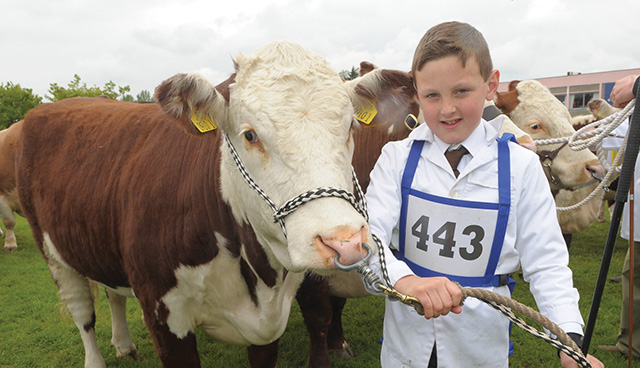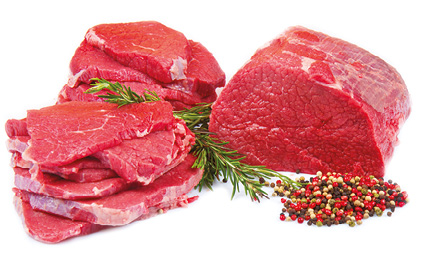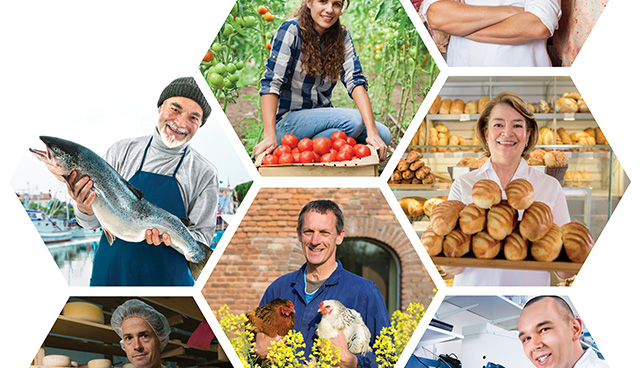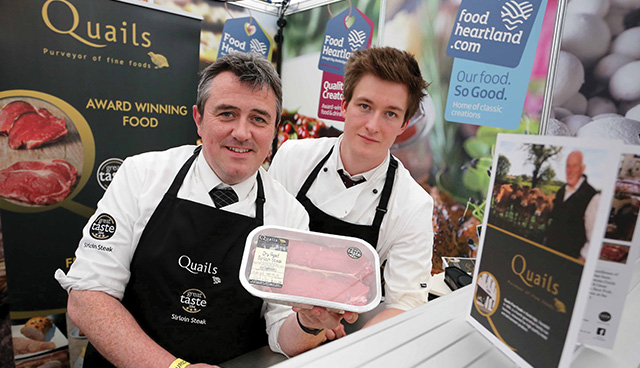Beef future ‘sustainable’


There is a sustainable future for beef production in Northern Ireland, according to Livestock and Meat Commission (LMC) Chief Executive Ian Stevenson.
“The good news is that the potential to grow more grass and, as a consequence, produce more beef is significant. So, the general prospects for the industry moving forward must be positive,” he says. “But that’s not to say we won’t have challenges to face and, looking down the track, Brexit is by far the most significant of these.”
Stevenson agrees that even if the UK walked away from the Brexit negotiations with a ‘no deal’ outcome, there is significant potential for Northern Ireland’s beef industry to secure a greater foothold in the GB market.
“This will be on the back of falling EU beef imports,” he adds. “However, the UK market will not take all of the beef we produce. The question of carcase balance then arises: how do we market offals and the other components of the beef carcase that British consumers are not enamoured with in the most efficient way possible?
“Up to this point, Europe has been our main outlet for these products. This is why it is so important that the UK secures a comprehensive trade deal with the EU before Brexit becomes a reality.”
Stevenson also confirms that Brexit will put more pressure on Northern Ireland’s beef industry to secure trade deals with other countries around the world. “Again, it comes back to carcase balance. Our processers are already doing business with customers in a host of locations outside the EU, the Philippines being the latest jurisdiction to accept beef from Northern Ireland.
“We need to build on this with the likes of China, the United States and Japan being key export targets for the future.”
From a future support perspective, Stevenson believes that the suckler sector must be ring fenced, once London becomes the driver of farm policy in the UK.
“Suckler cows are synonymous with quality beef production,” he explains. “Yet the sector is the one that is most exposed to market change. Suckler herds tend to be the backbone of the farming industry in our most disadvantaged areas. We are already seeing the additional funding package agreed for these regions by former Farm Minister Michelle McIlveen running its course.
“It’s important for this issue to be re-addressed by a future Stormont Executive and the powers-that-be in London, once Brexit becomes a reality. However, above all else, we need future support measures that recognise the fragility of the suckler beef industry here in Northern Ireland.
“If this is not achieved, we could well see the large scale human depopulation of our hill areas and this would be in nobody’s interest.”
LMC board members and staff have recently concluded a comprehensive round of engagement meetings, involving all its stakeholder organisations.
“The key themes arising from these get-togethers will help shape the development of our new three-year strategy and separately, the Commission’s 2018/19 business plan,” outlines Stevenson.
Confirming very strong and positive feedback from all industry stakeholders regarding the future role of the LMC within the red meat sector, he adds: “The ongoing development of the Farm Quality Assurance Scheme is seen as being critical, when it comes to assuring the future sustainability of the cattle and sheep sectors in Northern Ireland.
“The need to effectively promote locally produced beef on the home market is also regarded as a key priority for the future. Both these activities underpin the core work undertaken by LMC.”
Stevenson highlights six of the main challenges facing the red meat sector in 2018 and beyond: “Brexit is recognised by all the bodies concerned as the key challenge now facing the beef and sheep sectors.
“Closely following this, in terms of its importance, is the need to identify new markets for both our beef and lamb. Only in this way can we hope to achieve the carcase balance, which processers need, in order to deliver the best possible farmgate prices.”
According to Stevenson, delivering future sustainability at farm level is another priority for the grass-based livestock sectors.
“Securing higher levels of efficiency is important, in this regard but we also need to look at more innovative ways of delivering direct support to farmers. Our stakeholder organisations also recognise the need for the beef sector to be more creative when it comes to countering the claims made by the fast-growing anti-meat lobby.
“Developing a more joined-up red meat industry is also important. Our stakeholders all recognise the benefits generated courtesy of the various walk-the-line events organised for farmers in 2017 and we want to build on this during the year ahead.
“Finally, we need to ensure that our beef processers avail fully of the opportunities that will continue to present themselves on our home market, here in the UK.”
Reflecting on the developments that impacted on Northern Ireland’s red meat industry in 2017, Stevenson specifically highlights the attainment of BSE Negligible Risk Status for the beef sector. Notification of the risk classification upgrade to the safest possible level was confirmed by the World Organisation for Animal Health (OIE) at its annual meeting in Paris.
“The development will bring with it a number of benefits for both meat processers and livestock farmers in Northern Ireland. In the first instance, the amount of specified risk material that must be disposed of by processers will be reduced. This is a saving in its own right. However, the additional volumes of meat that can now be sold commercially from each beef carcase will add directly to the return received per finished animal.”
Looking ahead, the LMC representative says that the OIE decision should have positive implications for Northern Ireland’s beef industry on export markets.
“It should allow processers to put more beef into those countries they are currently servicing. For example, the 30-month age restriction, where beef is concerned, is no longer a restraint.
“The fact that we now have secured the safest BSE status should make the attainment of new export markets for beef, across-the-board, more achievable.”
Stevenson confirms that Northern Ireland’s beef processers are currently targeting a range of countries, including China: “The Paris decision will significantly improve the reputation of beef produced in Northern Ireland. This is a very important factor when it comes to doing business in countries like China and the United States, where there is a significant demand for manufacturing beef.”
LMC paid the fee that accompanied the submission to OIE, requesting BSE Negligible Status for Northern Ireland. “A joint application was submitted on behalf of Northern Ireland and Scotland. Our portion of the accompanying fee amounted to £4,500,” says Stevenson.
“It was a charge that we were more than happy to meet but more than that, LMC staff played a key role in developing the overall submission that was presented to OIE on behalf of the local beef industry.”






